Poetry Paints a Canvas in Your Mind | The Power of Poetry 2 - John Milton
Harvard Classics Volume 4
Video: Poetry Paints a Canvas in Your Mind | The Power of Poetry 2 - John Milton
A blind man is holding on to a dream. His talents are still intact, but his eyes have given out. All the images he created with his pen are images he can only now conceive in his mind. Writing and dreaming are his best escapes, but sadly, each day brings back the reality of his perpetual night.
Let's go visit Mr. Milton.
What's going on, everyone? Welcome to the cause. My name is Rob, and today we are going to discuss the second and third sets of poems in volume 4 of the Harvard Classics Series.
The poems we will be reviewing are those written at Horton and those written during the English Civil War. The poems in these two sets are very different from Milton’s previous ones. There is a refinement that I can’t quite put my finger on. The sensory use of language transports you to the scene that he is depicting. These poems stretch on a little longer, with Comus being the longest in this set.
This will help prepare us for moving into Paradise Lost, which will be the next book in the Harvard Classics. I am getting pretty excited about it, and it should be a dang good read. So with no further ado, let’s discuss Milton’s poetry.
Poetry:
First, we will cover the poems he composed while living in Horton. He would take about a 6-year self-directed personal study and work on his education during this time at Horton.
*You can sign me up for that!
The first two poems we will encounter are like Yin and Yang, water and fire, darkness and light. One poem, a relaxing stroll through the English countryside. The other, a walk of hurry, stress, and melancholy. L’Allegro and Il Penseroso (pen se roso) are the first two poems that I am referencing.
L’Allegro means the happy man or joyful, and Il Penseroso means the thinker. I like how both of these poems contrast moods that we all experience.
L’Allegro
L’Allegro highlights the happy emotions of a lovely spring day. The first part of the Poem banishes melancholy and allows for complete joy to be felt. The poem carries on in this fashion, discussing the landscape, the ploughman, the birds, and the crops.
He walks us through furloughed fields, a milkmaid, and introduces us to some mead. Mead is wine made from honey. We laugh, we tell stories, and dance in the checkered shade. There is some rolling smoke rising from the chimney in the distance. It's almost a scene from a Thomas Kinkade painting.
Now, I imagine Milton to be a painter, without a brush or canvas. Armed only with paper and pen, creating scenes, colors, tastes, and smells, and knowing all the while that the reader’s mind will be the canvas he paints upon. Each canvas would be unique as we interpret and absorb the words into our thoughts and imaginations. We all take away something a little different from the poems, and we all experience things differently based on our personal history. The last line of L’Allegro is conclusive and straightforward.
“These delights if thou canst give,
Mirth with thee I mean to live.”
This last part made me think about the “arrival fallacy” that many of us often fall into nowadays. We get so focused on completion, or when I reach this point in life, then and only then… Will I be happy. When you're always living for the future... Joy gets placed out into the horizon, and as we move closer and closer, we never obtain it. The horizon can only ever appear, but it can never be reached.
Happiness, success, and joy do not have to be something constrained to the future. Milton says, “Mirth with thee,” meaning laugh with me today, as I mean to live. Make it a habit to find happiness daily, surround yourself with people who make you laugh, and success, however you define it, will be something you can experience in the present. Walk in the joys of the present.
Il Penseroso (pen-se-roso)
Sadly, some of my days are honestly spent like the man in Il Penseroso.
But hail! thou Goddess sage and holy!
Hail, divinest melancholy!
This is me. I am chasing resources, providing for my family, and feeling down about a situation that my actions have landed me in, whether at work or at home. Leaving me pessimistic about the future or a specific situation. One line in this poem stopped me in my slow reading tracks.
“And made hell grant what love did seek;”
Pause and think on that one. So much to unpack in a line like that. Hell has a cunning way of creating sins that you love. In the search for love we may land on porn, adultery, or other sinful pleasures. What has hell brought to your life while you were on the search for truth or good? What have you exchanged love in return for? Think about that. The ending is unique because it goes against everything society tells us.
“These pleasures, melancholy, give
And I with thee will choose to live”
We are advised to seek happiness, search for joy, pursue the pleasures, and find a purpose in life. But many of us may unconsciously choose to live a life of busyness, depression, or melancholy. Some of us will die never realizing what our true purpose was, out of fear or ignorance. There is no getting around these feelings sometimes, especially depending on your personality, but finding a happy balance between the two poems is important. It is also essential to recognize that we all experience joy in different ways. The joy I find in reading history may, in turn, be your melancholy. Periods of bliss and melancholy are both natural in life, and learning to accept the downs allows for the enjoyment of the ups.
ON Time:
The next Poem is “On Time,” and I feel this poem resonates with people as they age in life. I will read a bit from it, as I find it relatable to my own thoughts.
“Fly, envious time, till thou run out thy race:
Call on the lazy leaden-stepping hours,
Whose speed is but the heavy plummets pace;
And glut thyself with what thy womb devours,
Which is no more than what is false and vain,
And merely mortal dross;
So little is our loss,
So little is our gain!”
I was curious about the usage of 'Womb', and from my understanding, it can be read as referring to the stomach as well. Whether it is regarding appetite or creation, I am not sure what he intended, but either word fits in my opinion. Glut thyself with what thy womb devours. And then he says, which is no more than what is false or vain. Merely mortal dross. Dross refers to worthless or even hazardous material that should be removed. So we surround ourselves with false and vain things that we crave and desire. All the while, these things devour our time and consume enormous portions of our lives. So little do we lose, but so little do we gain. In our human weakness we do not remove the worthless material but let it fester and consume. Immediately, I think of the 4-5 hours of daily phone usage that used to appear on my phone. What did I truly gain from that time?
5x7 = 35 hours a week.
We almost have a separate full-time job just looking at a tiny screen. Granted, some of that time may be productive activity, but let’s be honest… As life becomes easier, it also becomes very tempting to waste those leisurely hours on frivolous activities that bring nothing to your life. Where Milton spent six years locked away, learning languages, creating poetry, and helping to defend liberty during the English Civil War, I struggle with one language and find pleasure in doom-scrolling Instagram from time to time, instead of participating in the world God created around me. Let’s move to our next poem before things get too gloomy.
Comus:
I want to move over to the poem Comus, A Mask. It was initially performed as a play at Ludlow Castle in 1634. It was presented as a celebration for John Egerton, the “First Earl of Bridgewater”. The play was first printed anonymously in 1637 and was included in Milton’s works about 10 years later.
At first, it took me a bit to find interest in this poem. Sometimes, setting up the scene takes a while. I get a little impatient waiting for the “meat” of the story, and that’s something I have to keep working on. But after the character Comus is introduced, things get intense pretty quickly. Understanding the context of Comus helps you better comprehend the poem.
Comus is based on the Greek god Dionysus. He was the god of drunken revelry, a patron to the theatre, and also known as the god of fertility (He liked the fun sins). And he performs and tries to perform all three of these in this poem. I will provide a brief summary to help explain the key takeaways from this one.
There are two brothers and a sister in the woods. The “Lady,” as she is referenced, is hungry and tired, and the two brothers separate from her to find some food. Comus, the little immoral cocktail slinging lady seducer, appears on the scene as a villager and promises to bring her to her brothers, whom he said he had seen.
So sayeth she.
“Shephard I take thy word,
And trust thy honest-offered courtesy.”
So she trusts Comus and agrees to go with him to find her brothers. Instead, he kidnaps her and brings her to his lair of seduction.
“What hath night to do with sleep?”
He tries to get her to drink wine and take advantage of her. The sister is a chaste young lady, though, and denies and deflects all his advances. Some excellent lines in this poem stuck out to me. When the lady is chained up and Comus is pouring the drink and seducing her, she replies.
“Though canst not touch the freedom of my mind.”
She also says,
“that which is not good is not delicious to a well governed and wise appetite.”
Comus continues to pry and push himself on her, and at this point, I realized that the lady is holding her own against the temptations of Comus. She says..
“Thou has nor ear, nor soul to apprehend”
Evil does not know what “No” means. Evil is not capable of hearing it. Comus's last lines to the lady are, “Be wise, and taste.” The lady never gives in, and… Right when things are about to get intense, the two brothers burst in and save their sister.
The poem or play is a test of youth for all of them. The brothers were individually tested, as was the sister, regarding her experience. The lessons in the poem are very traditional, and it turned out to be a very enjoyable short poem. After reading Paradise Regained, which recounts the temptations Jesus faced in the wilderness, and Paradise Lost, which tells the story of the fall of man through temptation, I view this poem differently. This poem is another great lesson on temptation. The results of our choices in the face of temptation usually direct the outcome of our lives.
3rd set of poems:
I was going to separate the third set of poems into a separate post, but since this set is only about 7-8 pages long, we will include them here. The poems written during the Civil War are completely different in almost every aspect from the ones we have previously covered. They are very political in nature, and to grasp the key takeaways, I believe you need to have a foundational understanding of the English Civil War, the parliament of this time, and the impact of Cromwell on England.
There is one line that stood out to me because I believe that during any revolutionary period, there is an idea or concept that, throughout history, has become a reality. Blood is sometimes the sacrifice we need to rediscover the truth. As Jefferson would echo later in history,
“The tree of liberty must be watered from time to time with the blood of patriots and tyrants.”
Milton says…
When violence is needed to find truth and define what is right, you can almost be certain these periods will go down in history as Civil Wars or Revolutions. This was an intense period. It is a period that would change England forever. I plan to study this period in depth over the next couple of years, and I would love to revisit these poems once I have more context of the times.
The last poem I want to review is the one about his deceased wife. His second wife, Katherine, would die during childbirth. And in my opinion, this is where Milton shines. Check this next one out and read it slowly and out loud. So, after her death, she comes to him in a dream.
See what you think.
“Her face was veiled; yet to my fancied sight
Love, sweetness, goodness, in her person shined
So clear as in no face with more delight.
But, oh! As to embrace me she inclined,
I waked, she fled, and day brought back my night.”
Brought back the sorrow and pain. It also brought back the reality of his blindness. You see… Milton was blind at the time of writing this, and he would not have been able to see her anyway. Waking up from that dream brought back his night in more ways than one.
I leave you with that!
Thank you for checking out my post, and I hope you enjoyed the poems by John Milton. Please take the time to read through these old poems and enjoy them yourself. I will link a Penguin Classics book that has many of his poems here.
Next in the Harvard Classics series, we move into Paradise Lost. But, I think the next post will be on “How to Read a Book” by Adler.
I wanted to cover this book first to help equip me with the skills needed to read through a book like Paradise Lost. I have been looking forward to both of these for quite some time now. It's going to be a great experience.
If you would like to purchase my coffee, the link to the brown bean yum yum can be found here. If you use the code “thecause” you can get 15% off your first order. All of these posts are available in both video and podcast formats, and are linked below for your convenience.
The Cause With Rob - YouTube and Podcast
How to Read a Book and Paradise Lost are next. Drink some amazing coffee, read some exciting books, and I will see you next week!
I love you all and stay blessed!
John Milton - Complete Works
FAVORITE BOOKS:
• The Republic: Plato
• Plato/Aristotle Starter: Arthur Herman
• Alexander Hamilton: Ron Chernow
• The Hero of Two Worlds: Mike Duncan
• Washington: A Life - Ron Chernow
FAVORITE JOURNALS:
• Writing Journals
Listen or Watch Below.





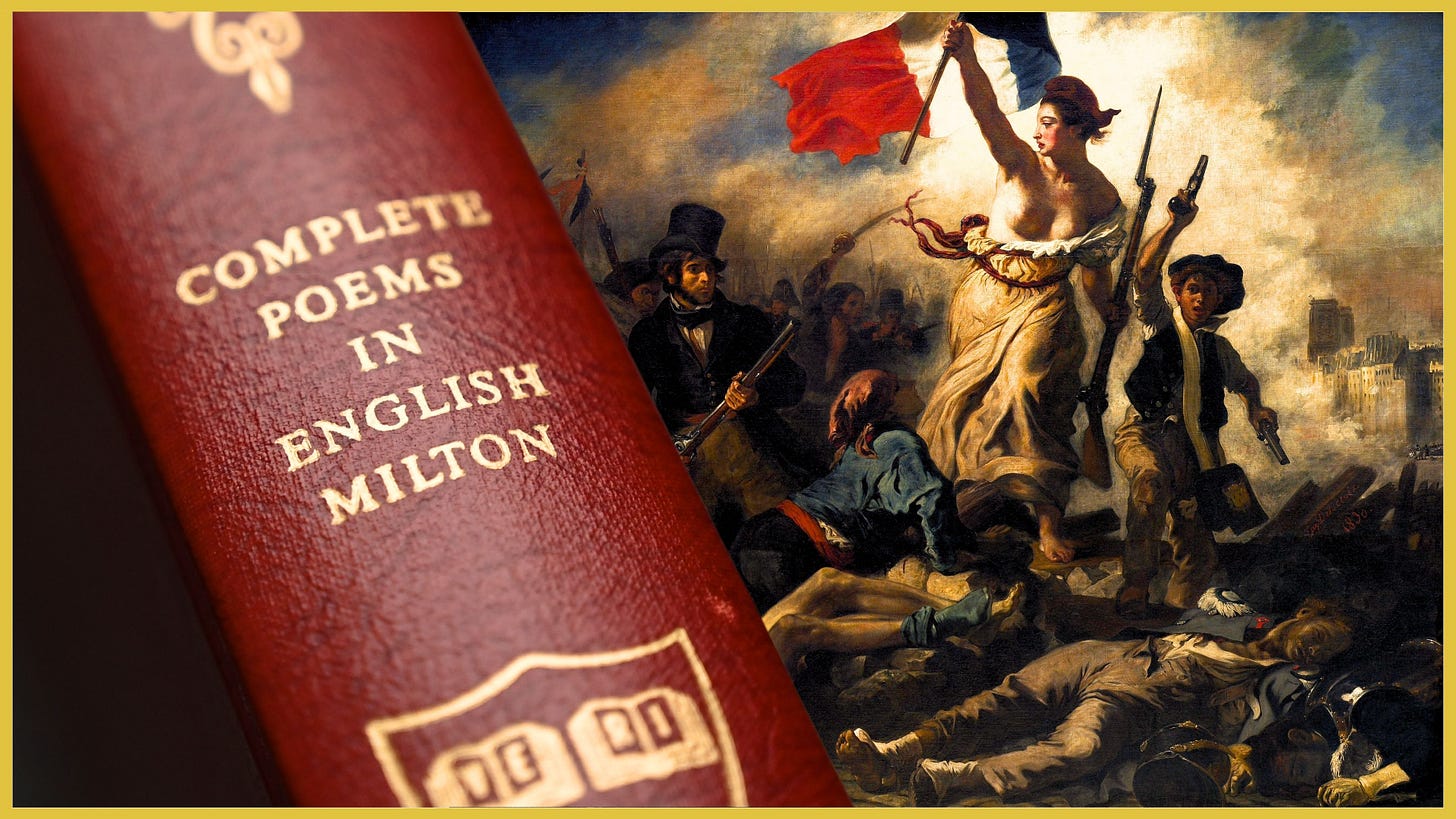
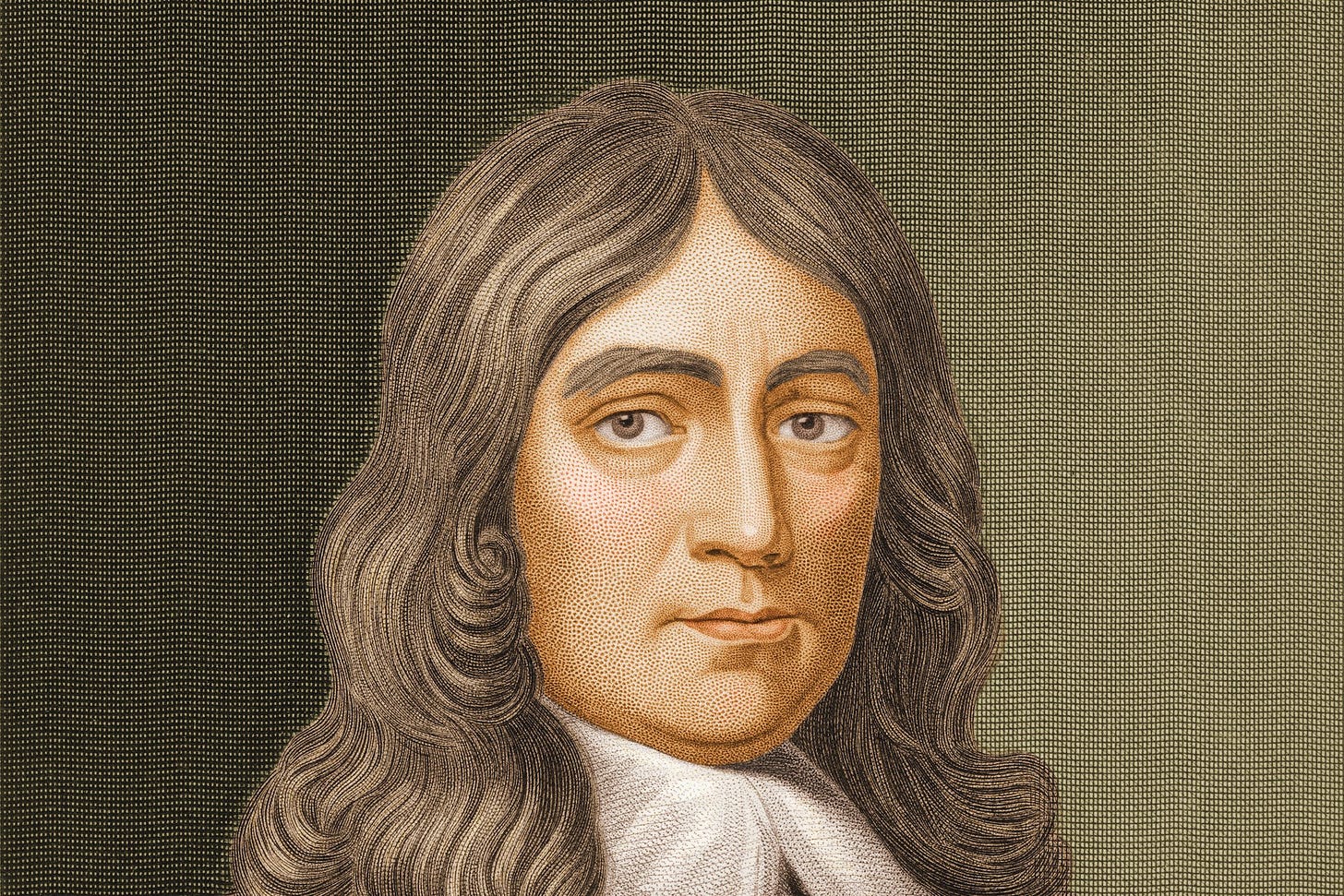
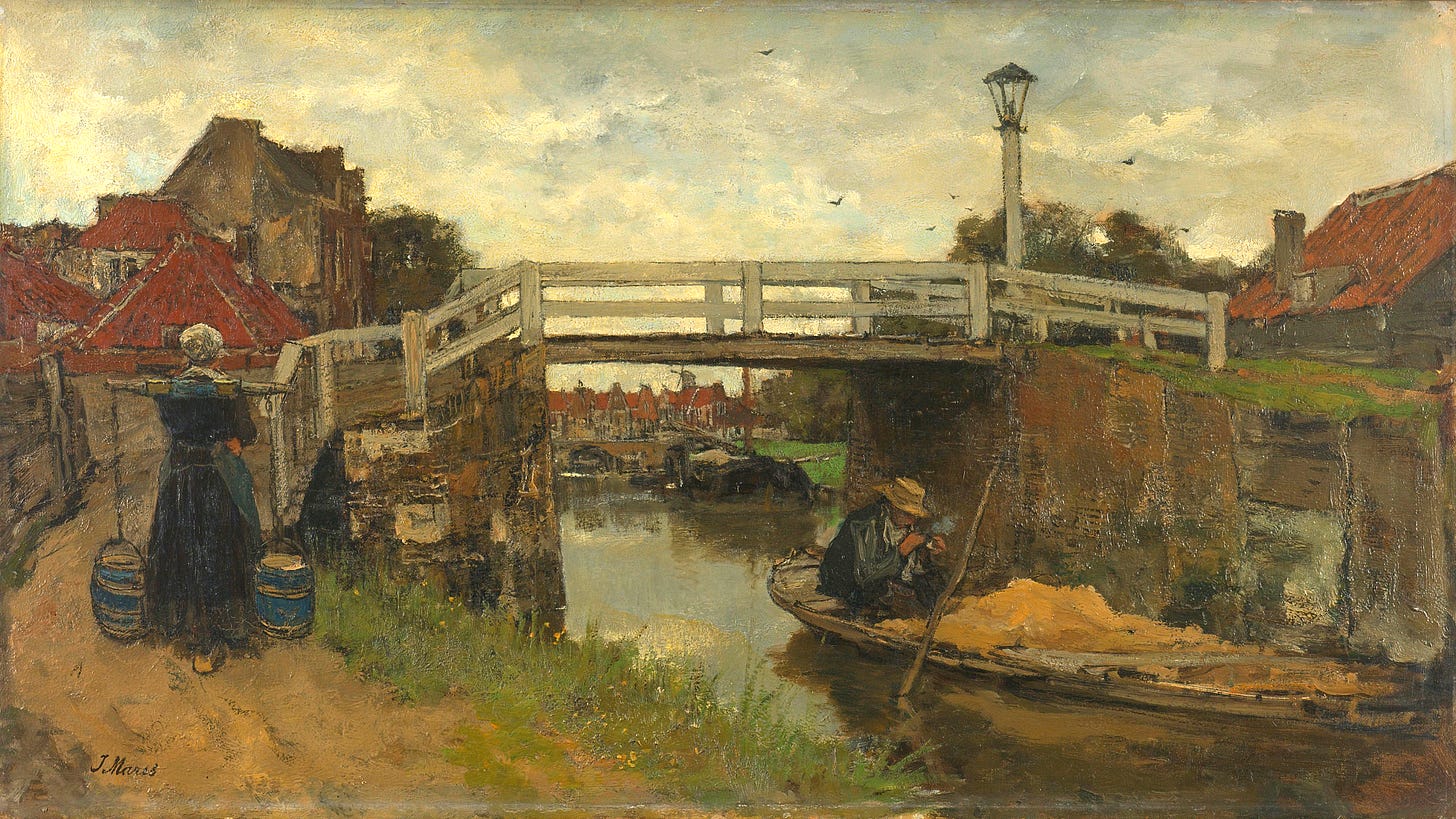
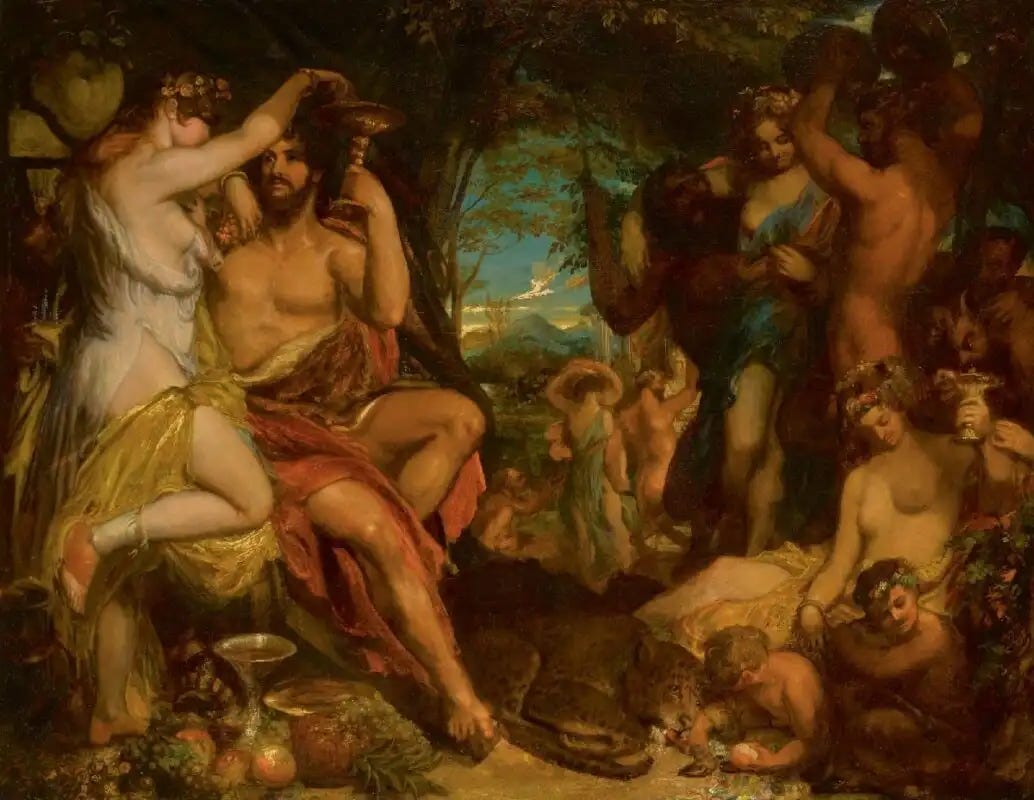
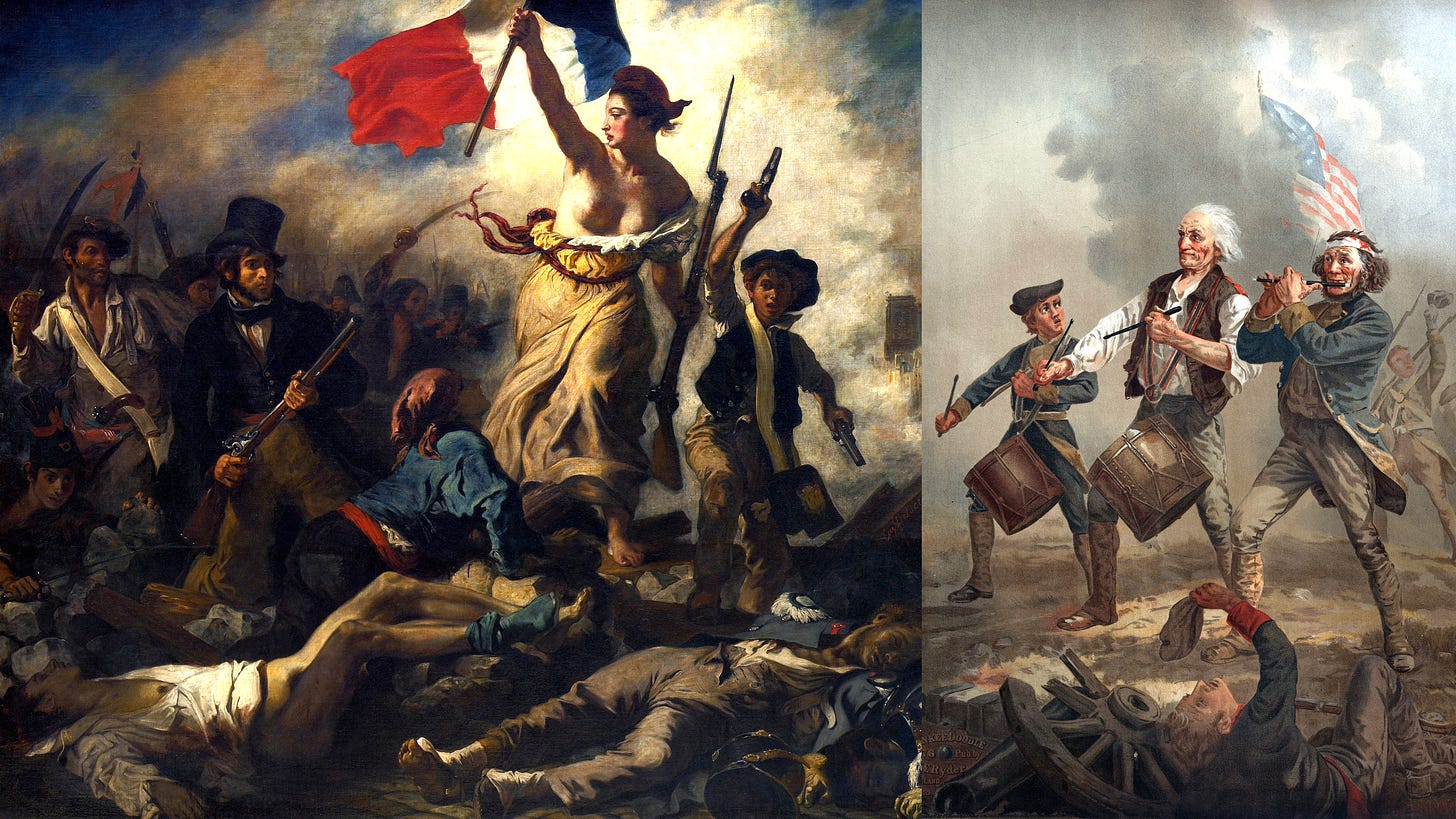
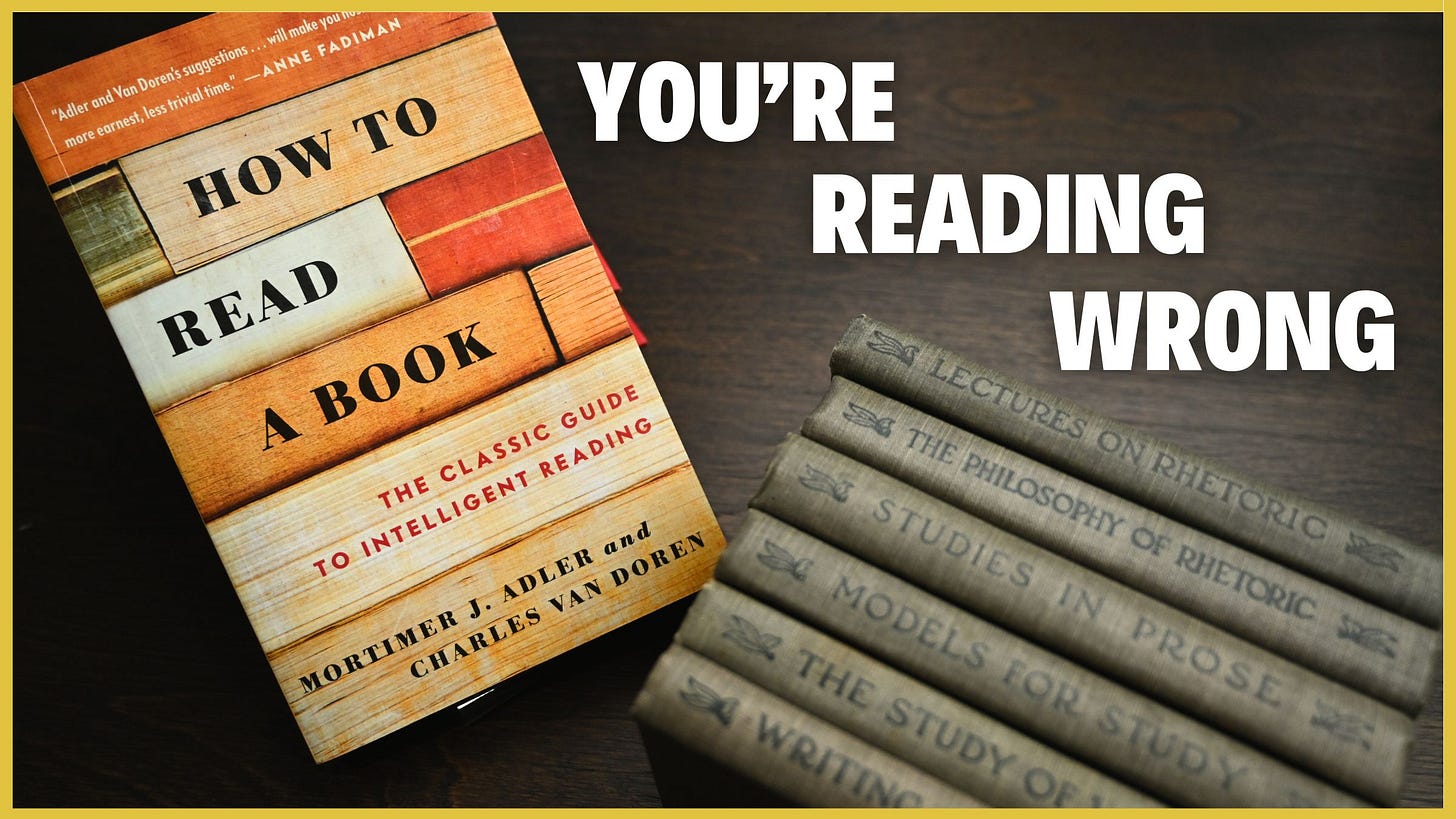

This is great! Thanks for making Milton's wonderful works more visible.
Thank you for your thoughts here! I'm bookmarking a " complete poems of Milton" to follow up on sometime... Right now I'm in book 8 of Paradise Lost, with Adam questioning Raphael about the structure and rationale behind the universe. Looking forward to your takes on that book.